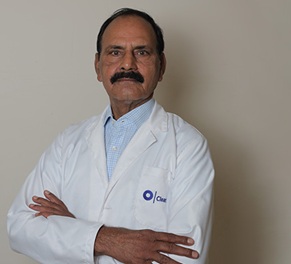Gallbladder Cancer: Curative and Palliative Options

Quick Summary
- Gallbladder cancer is a rare cancer that starts in the tissue of the gallbladder.
- The gallbladder is a small organ located under the right side of the liver.
- Gallbladder cancer is often not found until it is in an advanced stage because it does not cause many symptoms.
Cancer that starts in the tissue of the gallbladder is called gallbladder cancer. It is the abnormal and uncontrolled growth of the cells in the gallbladder. A gall bladder is a pear-shaped organ located under the right side of the liver in the abdomen. Gallbladder cancer is a very uncommon and rare disease. The chances of a cure for gallbladder cancer are very good when discovered in an early stage. However, gallbladder cancer is mostly detected at the later stage due to its small size and fewer symptoms.
How can Gallbladder can be Treated?
Surgery is one of the best and most effective methods for treating gallbladder cancer. It is often carried out when cancer in the gallbladder has not spread to other body parts. The process of surgical removal of the gallbladder and the nearby tissue is called a cholecystectomy. The surgery for gallbladder cancer is a complex procedure and is performed by an experienced oncologist at the cancer centre.
There are two types of surgery performed for the treatment of gallbladder cancer. These are:
- Palliative surgery for gallbladder cancer: It is done to relieve the symptoms or treat and prevent the complications of gallbladder cancer. Palliative surgery is carried out when cancer has spread to other body parts and cannot be removed completely. It does not cure cancer but helps provide relief from pain and helps you live longer. The surgeon prevents or manages jaundice by avoiding the blockage or unblocking of the bile duct.
- Potentially curative surgery: It is carried out when the results show the cancer is confined to the gallbladder only, and there is a good chance to remove all cancer completely. It is of 2 types which are:
- Resectable Potentially curative surgery: In this, the doctor believes cancer can be removed completely. Surgery for Resectable cancer: The two types of surgeries performed for resectable cancers are:
- Simple Cholecystectomy: In this surgery, the surgeon removes the gall bladder completely. It is performed when the cancer is at a very early stage. It is done in two ways:
- In laparoscopic cholecystectomy, the surgeon puts a thin, flexible tube with a tiny camera on the end (called a laparoscope) into the body through a small incision in the abdomen. Then other surgical instruments are put through other openings to take out the gallbladder.
- Open cholecystectomy: The surgeon makes a large incision in the abdominal wall to remove the gallbladder. It is also performed to remove the gallstones.
- Extended or Radical Cholecystectomy: It is a complex procedure and is performed when there are chances that cancer might come back. The extent of the surgery depends on the stage of cancer and the location of cancer. In this, the surgeon removes the gallbladder, all the lymph nodes near the gallbladder, about an inch or large part of the liver tissue (near the gallbladder), the common bile duct, The pancreas, duodenum, lymph nodes around the pancreas and major blood vessels and any other reason or organ where cancer has spread
- Simple Cholecystectomy: In this surgery, the surgeon removes the gall bladder completely. It is performed when the cancer is at a very early stage. It is done in two ways:
- Unresectable potentially curative surgery: The doctor thinks the cancer is far too advanced and has spread to nearby tissue or organs. It is difficult to remove all cancer entirely through surgery. The goal is not to treat cancer but to provide relief for the symptoms and pain.
- Resectable Potentially curative surgery: In this, the doctor believes cancer can be removed completely. Surgery for Resectable cancer: The two types of surgeries performed for resectable cancers are:
Radiation Therapy
It uses high-energy rays or beams to kill the cancerous cells of the gallbladder and stop them from multiplying. Radiation uses a machine outside the body that emits a beam of X-rays or particles aimed at cancer. It is a painless procedure and lasts only for a few minutes. Radiation therapy is usually given five days a week for many weeks until treated.
Radiation therapy can be used in the following cases:
- After the surgery kills any cancer cells that might have been left as adjuvant therapy.
- As a part of main therapy in cases when cancer has not spread to other parts of the body but cannot be removed surgically
- Palliative care provides relief from the pain and symptoms and helps the person live longer, which is carried out when cancer is too advanced to be cured.
Chemotherapy
The drugs or the combination of drugs used to treat the cancer are called chemotherapy. It can be given as the main treatment or to relieve the symptoms due to cancer. Chemotherapy works by destroying or killing the cancerous cells by keeping the cancer cells from growing, diving, spreading, and preventing the making of more cells. It can be used in the following ways:
- As palliative care for the treatment of gallbladder cancer by shrinking cancerous cells of the gallbladder or by slowing their growth
- As an adjuvant treatment after the surgery to kill the remaining cancer cells if left and to reduce the chances of cancer coming back
- As the main treatment for far advanced cancer that cannot be removed and has spread to other body parts, it does not cure cancer but helps people live longer.
- As neoadjuvant chemotherapy is used before the surgery
Chemotherapy can be given through the mouth or into a vein. These drugs reach all the body parts through the blood and destroy the cancerous cells. The different drugs used to treat gallbladder cancer are Fluorouracil, Cisplatin, Gemcitabine, Oxaliplatin, and Nab-paclitaxel.
Immunotherapy
The use of medicines to boost the person's immune system or body's defence system to fight against cancer is called Immunotherapy. It helps the immune system better recognize and differentiate the cancerous cells from the healthy cells and destroy them. It works by strengthening the immune system to fight cancerous cells. Immunotherapy is recommended for gall bladder cancers widely spread to other body parts and cannot be removed surgically. It is also called biological therapy.
The two immunotherapy drugs approved for the treatment of gall bladder cancer are:
- Pembrolizumab (Keytruda)
- Nivolumab (Opdivo)
Targeted Therapy
It is a type of treatment that utilises certain substances or drugs to identify, target, and destroy specific cancerous cells. It is called target therapy because the drugs target the mutations that make the cancer cells different from the healthy cells. As a result, it causes less harm to healthy or normal cells than radiation therapy and chemotherapy. For example, targeted therapy is used to treat gallbladder cancer which cannot be successfully removed by surgery and has spread to other body parts. Some targeted therapies used in the treatment of gallbladder cancer are:
- Ivosidenib target therapy: It slows or stops the growth of cancerous cells in the gallbladder by blocking the specific mutation in a gene called IDHI.
- Pemigatinib target therapy: It keeps the cancerous cells from growing and killing them by blocking the specific changes in a gene called FGFR2.
- Pemazyre target therapy: It prevents the cancerous cells from growing by targeting certain mutations in the FGFR2.
Last Updated on: 13 October 2025
Reviewer

Dr. Aman Priya Khanna
MBBS, DNB General Surgery, Fellowship in Minimal Access Surgery, FIAGES
14 Years Experience
Dr Aman Priya Khanna is a well-known General Surgeon, Proctologist and Bariatric Surgeon currently associated with HealthFort Clinic, Health First Multispecialty Clinic in Delhi. He has 14 years of experience in General Surgery, Proctolo...View More
Author

Rajath R Prabhu
MSc. Clinical Research I PG Diploma in Public Health Services Management
3 Years Experience
His work in medical content writing and proofreading is noteworthy. He has also contributed immensely to public health research and has authored four scientific manuscripts in international journals. He was assoc...View More
Expert Doctors (10)
NABH Accredited Hospitals (5)
Latest Health Articles
Related Treatments



















